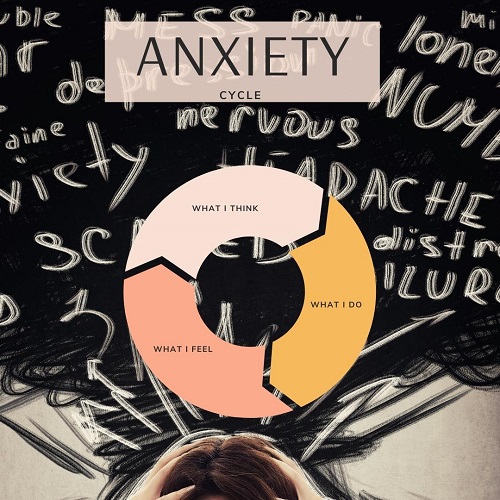How to Help Kids Overcome Their Fear and Anxiety
by Kathy Slattengren, M. Ed., Priceless Parenting (sign up for monthly parenting newsletter and receive 20+ printable charts for kids and parents)

Childhood is often pictured as a fun, carefree time of life. However, children also have many worries and concerns. Having some anxiety is part of normal life but it becomes a problem when that anxiety starts interfering with children's daily activities.
According to Dr. Donna Pincus author of
Growing Up Brave, "perhaps as many as one in five children today suffers from a diagnosed anxiety disorder, and countless others suffer from anxiety that interferes with critical social, academic, and physical development."
Feeling Anxious in Different Situations
Feeling anxious isn't fun for anyone. It's natural to want to escape whatever situation is creating the anxiety. However, running away only reinforces the negative feelings associated with it and makes it even harder the next time.
There are also many anxiety producing situations which simply cannot be avoided. For example, everyone must sleep even if going to sleep is difficult due to worries.
Below are some common situations that make children anxious:
- Going to bed, sleeping alone, sleeping with the lights off
- Separating from parents for a play date or being left with another adult
- Encountering animals like dogs, snakes or bugs
- Going to school, taking tests, speaking in front of the class
- Performing in a sport
- Striking up a conversation with a peer, joining in playing
- Being in an enclosed space like an elevator, subway or airplane
- Earthquakes, storms, nuclear war or other catastrophic events
When your children are feeling anxious, it's natural to want to reassure them and make things better. Although some things that you may do can actually make things worse like:
- Reassuring your child that there is nothing to be afraid of
- Allowing your child to avoid anxiety producing situations
- Performing rituals to reduce your child's anxiety
- Engaging in repetitive discussions around the same anxiety questions
- Having TV news shows on around your children
Let's consider what you can do instead which is more likely to help.
Understanding the Three Parts of Anxiety
In
Growing Up Brave, Pincus describes what she calls the "cycle of anxiety". The cycle consists of three components:
- What I think
- What if I don't fall asleep tonight?
- I'll probably mess up and the other kids will make fun of me.
- What if mom and dad don't return?
- What I do
- Go into mom and dad's room to sleep.
- Skip joining in on the game.
- Plead with mom and dad not to go without me.
- What I feel
- My heart starts to beat fast and loud
- My palms get sweaty and my face turns red
- My head and stomach hurt
The cycle can begin with any of the elements - thoughts, actions or feelings. The components work together to keep the cycle going.
Breaking the Cycle of Anxiety
There are a number of ways to help children overcome their anxiety. One of the ways Pincus explains is to draw a "Bravery Ladder". Each step on the ladder represents one small step towards achieving the overall goal.
For example, if a child is feeling anxious about playing the piano in a recital, the first step might be to play the piano piece at home in front of mom and dad. The next step might be to play the piece in front of a friend. Each step gradually gets the child closer to the goal of being able to play the piece in the recital.
One important aspect is that when children experience the physical symptoms of anxiety like their heart racing or difficulty breathing, they should stay in the situation until these physical responses are reduced by at least half. By hanging in there, the children learn that their bodies will slow down and recover.
It can also be helpful to explore your children's negative thoughts with them. Pincus identifies the two most common types of anxiety thinking involve overestimating the probability of something happening and catastrophizing. For example, a child who is afraid of speaking in front of the class may imagine that he will stand up in front of the class and be totally unable to speak and all the other kids will begin laughing and making fun of him.
You might help your child by asking things like "Have you ever gotten up in front of the class and not been able to say a word? Do other kids feel nervous when they have to speak in front of the class? If you see a classmate struggling to speak, do you laugh at them or do you feel like cheering them on? What if kids do laugh, what's the worst thing that will happen to you?"
Exploring questions like these can help your children put their concerns into perspective. Realizing that they can handle other kids laughing, mom and dad probably will make it home safely or that eventually they will fall asleep can help kids control their negative thoughts.
What if none of this helps your child's anxiety level? Could there be an underlying physical component contributing to their anxiety?
Dr. Kenneth Bock describes helping emotionally struggling kids in his book,
Brain Inflamed: Uncovering the Hidden Causes of Anxiety, Depression, and Other Mood Disorders in Adolescents and Teens. His brilliance lies in detecting problems in a child's immune system that have led to symptoms like anxiety, depression, brain fog, rage, school phobia, insomnia, and irritability.
Many of the children he treats overcome things like anxiety after their underlying immune system issues are resolved.
Finding the help your child needs to overcome their anxiety may require a lot of detective work. It's worth it when your children can successfully deal with their fears and worries. They'll be having a lot more fun and so will you!